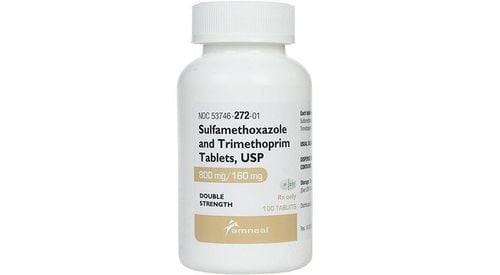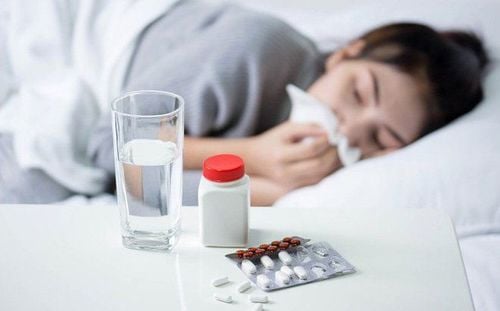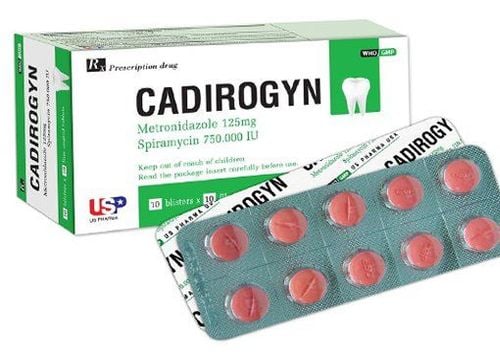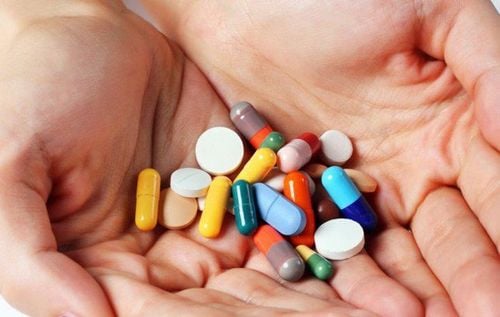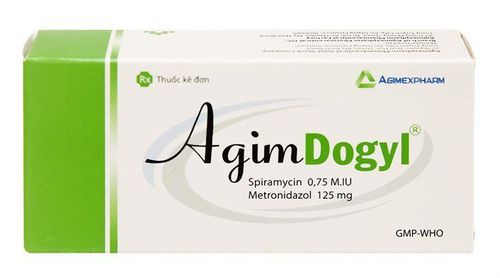This is an automatically translated article.
Dorogyne belongs to the group of antibiotics used regularly in the dental industry to help relieve toothaches and limit infections. The following article will provide you with more complete information related to the uses of Dorogyne as well as the indications for Dorogyne according to answers from doctors and pharmacists.
1. Find out what is Dorogyne and what ingredients does it have?
Dorogyne drug belongs to the group of antibiotics with the function of preventing infection / infection in the oral environment. Dorogyne is a combination of the antibiotic Spiramycin, an active ingredient of the Macrolide group, and the antibiotic Metronidazol of the Nitro-5-imidazol group. The main ingredients of Dorogyne drug are two active ingredients, Spiramycin base and Metronidazol, in addition to some excipients such as Starch 1500, Povidon, Lactose, Sodium Croscarmellose, Magnesium stearate, Avicel, Aerosil, Hydroxypropylmethyl cellulose 6cP, Hydroxypropylmethyl cellulose 15cP , Polyethylene glycol 6000, Talc, Titanium dioxide and ponceau lake color, all combined into one pill.
Currently, Dorogyne is sold on the market with a reference price of about 36,000 VND a box. Dorogyne is also made in two forms, Dorogyne and Dorogyne -F, in which the Dorogyne -F line has twice the active ingredient content than the other.
2. What effect does Dorogyne have on dental infections?
Dorogyne is frequently indicated in the treatment of acute and chronic infections as well as recurrent infections such as tooth abscesses, perimandibular cellulitis, periradicular inflammation and inflammation, and periodontitis. periodontitis, gingivitis, stomatitis, submandibular inflammation and parotid gland inflammation..., and is also used as a method of infection prevention after oral surgery.
Besides, some other types of infections such as acute sinusitis, pharyngitis, superinfection due to acute bronchitis, genital system infection due to gonorrhea, and benign skin infections may also be indicated. Use Dorogyne. In particular, Dorogyne can also prevent meningococcal meningitis.
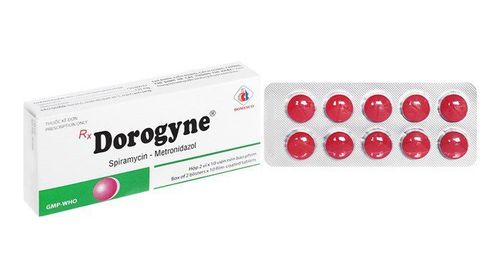
Thuốc Dorogyne được dùng trong nhiễm khuẩn răng miệng
3. When is Dorogyne contraindicated?
Dorogyne is an antibiotic but only two groups of people are contraindicated including:
Children under 6 years of age. People who are allergic to the ingredients in Dorogyne , especially the two antibiotics Spiramycin and Erythromycin . This shows that Dorogyne has the ability to treat many different subjects and ages for dental problems. However, this is not a reason for you to arbitrarily use the drug without a specific prescription from your doctor.
4. How to take Dorogyne effectively and what is the specific dose?
About how to use, taking Dorogyne is very simple, you just need to take a whole tablet (do not chew and do not crush) with water. The drug works well when taking Dorogyne with meals.
About the usual dose, Dorogyne is indicated for adults as follows:
Take about 4 to 6 pills a day and should be divided into 2 to 3 times to be absorbed gradually by the body. In case of serious infection, the number of tablets can be increased up to 8 tablets per day. For children, prescribe Dorogyne as follows:
Children aged 6 to 9 years: take 2 Dorogyne tablets per day and divide into 2 oral doses. Children aged 10 to 15 years: 3 tablets per day and divided into 3 times, 1 tablet each time.
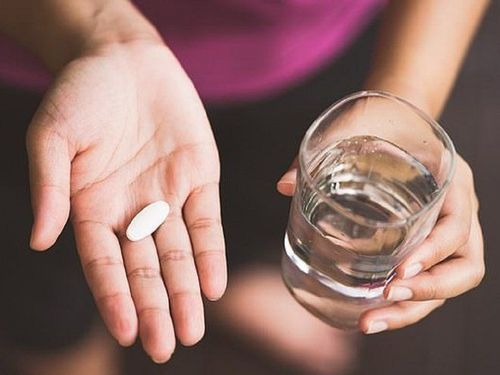
Người bệnh nên dùng thuốc Dorogyne theo liều chỉ định
5. What side effects does Dorogyne cause?
Dorogyne antibiotics have many common side effects, ranging from mild to severe, of which the extremely common are:
Dorogyne causes digestive disorders, including nausea and vomiting, diarrhea, pain stomach or even stomach bleeding. The body has many red rashes and hives that cause itching. Metallic taste appears in the mouth, can cause inflammation in the tongue and mouth, the white blood cell count decreases immediately after stopping the use of the drug. Patients receiving Dorogyne often experience dizziness and ataxia in movement, paresthesias and polyneuritis during dosing, but this is rare.
6. Dorogyne interacts with which drugs? Notes to remember when taking Dorogyne
First of all, make sure to clearly tell your doctor if you are having problems with the central nervous system or peripheral nerves before the doctor prescribes the medicine, because Dorogyne can cause these conditions to be worse. This is more serious. Besides, it is necessary to avoid drinking alcohol while taking Dorogyne.
For pregnant women in the first 3 months of pregnancy as well as mothers who are breastfeeding should not take Dorogyne, because the drug can cause negative effects on the baby through the placenta or breast milk sugar. Along with that, people with a history of blood disorders should also avoid using this drug.
During the time of taking the drug, if you experience confusion and ataxia, stop using it immediately and inform your doctor about your condition.
Dorogyne drug may interact with some other drug groups such as Lithium, Warfarin, Disulfiram, Fluorouracil and Vecuronium, causing the effect of the drug to be reduced.
In general, Dorogyne is an antibiotic commonly used in dentistry with the effect of preventing and treating bacterial / infectious conditions in the mouth. In addition, the drug is also prescribed for a number of other inflammatory problems. Remember that this is a prescription drug and you should not take it without your doctor's recommendation.
Follow Vinmec International General Hospital website to get more health, nutrition and beauty information to protect the health of yourself and your loved ones in your family.
Please dial HOTLINE for more information or register for an appointment HERE. Download MyVinmec app to make appointments faster and to manage your bookings easily.




